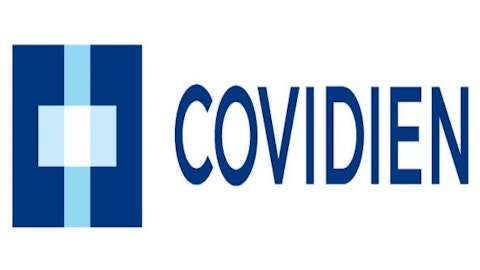Acceleron Pharma Inc (NASDAQ:XLRN), a company developing treatments for cellular growth and repair, lands in the third position in Foresite Capital’s portfolio. The position was increased by 68% during the first quarter to 93,781 shares with a value of $3.57 million. Acceleron Pharma Inc (NASDAQ:XLRN) released its first quarter results today with the company losing $0.45 per share on limited revenue. It does however have a strong cash flow base of over $175 million to work from, which it predicts will carry its operations through mid-2017. Acceleron Pharma Inc (NASDAQ:XLRN) has plans to initiate phase 3 trials for its treatment luspatercept by the end of the year. Adage Capital Management holds the largest stake in Acceleron out of the funds in our database.
Foresite Capital’s final holding is Ignyta Inc (NASDAQ:RXDX), a biopharmaceutical company developing various targeted cancer treatments. Foresite’s position was lowered by 32% during the first quarter, leaving it with a $3.35 million holding made up of 336,766 shares. Ignyta Inc (NASDAQ:RXDX) shares spiked more than 30% in early March after it acquired the rights to four oncology development programs from Teva Pharmaceutical Industries Ltd (ADR) (NYSE:TEVA), and are up by 36% year-to-date. Kevin Kotler’s Broadfin Capital reported raising its stake in Ignyta shortly afterwards, to 1.52 million shares.
Professional investors like Tananbaum spend considerable time and money performing due diligence on each company they invest in and have extensive knowledge of their sectors of expertise, which makes them the perfect investors to emulate. We analyzed the historical stock picks of investors like Tananbaum and our research revealed that the small-cap picks of these money managers performed far better than their large-cap picks, which is where most of their money is invested and why their performances as a whole have been poor. That’s because their expertise and intimate knowledge of the companies they consider investments in gives them a big advantage over the average investor; an advantage that is not nearly as prominent when it comes to well-known and covered large-cap stocks. That’s why a portfolio of the 15 most popular small-cap stocks among funds outperformed the S&P 500 Total Return Index by 95 basis points per month between 1999 and 2012 in backtesting. The results of this strategy have been even better in forward testing after the strategy went live at the end of August 2012, returning more than 137% and beating the market by more than 82 percentage points since then, and by 4.6 percentage points in the first quarter of this year (see the details).
Disclosure: None





